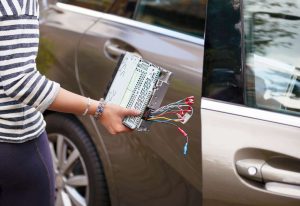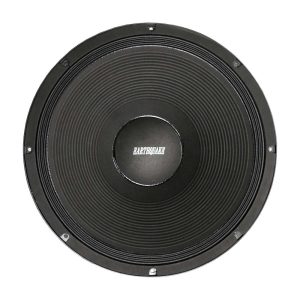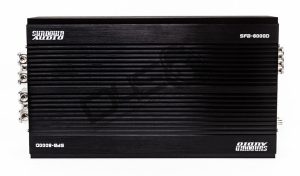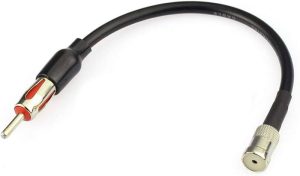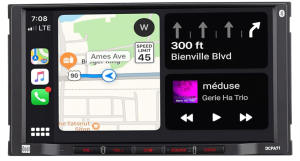Upgrading your car’s audio system sparks excitement, but a flawless installation ensures your new stereo delivers top-notch sound quality. Choosing the right mobile car stereo installer makes all the difference. A skilled professional transforms your vehicle’s audio experience, while a poor choice risks shoddy work and costly repairs. This guide walks you through the essential steps to find a reliable installer who meets your needs. From certifications to customer reviews, we cover everything you need to know for a seamless car audio upgrade.
Contents
- Why Choosing the Right Installer Matters
- Look for Industry Certifications
- Evaluate Experience and Specialization
- Check Insurance and Liability Coverage
- Ask About Factory Component Handling
- Inquire About Wiring Practices
- Read Customer Reviews and Testimonials
- Visit the Installer’s Shop
- Discuss Customization and Special Requests
- Compare Pricing and Value
- Seek Recommendations from Car Audio Communities
- Verify Warranty and Aftercare Services
- Trust Your Instincts
- Tips for a Smooth Installation Process
- Common Mistakes to Avoid
- Conclusion
Why Choosing the Right Installer Matters
A car stereo installation involves complex wiring, precise fitting, and technical expertise. The wrong installer might damage your vehicle’s electrical system, misalign components, or leave you with subpar sound. A qualified professional, on the other hand, ensures your system performs at its best. They understand your car’s unique setup, use high-quality tools, and follow industry standards. By selecting a skilled installer, you protect your investment and enjoy crystal-clear audio on every drive.
Beyond sound quality, a good installer saves you time and stress. They handle the job efficiently, reducing the risk of errors that lead to costly fixes. Whether you’re installing a basic head unit or a full-blown competition system, the installer’s expertise directly impacts the outcome. Let’s dive into the key factors to consider when choosing the perfect mobile car stereo installer.
Look for Industry Certifications
Certifications signal an installer’s competence and commitment to quality. The Mobile Electronics Certified Professional (MECP) certification stands as the gold standard in the car audio industry. It comes in three levels: Basic, Advanced, and Master. A Basic certification ensures foundational skills, while Advanced installers handle more complex systems. Master installers, though rare, bring unparalleled expertise. Ask potential installers about their certifications and verify their credentials.
Certified installers stay updated on the latest car audio technologies, from Bluetooth-enabled head units to Android Auto integration. They also follow best practices for wiring and component installation, reducing the risk of damage to your vehicle. When interviewing installers, prioritize those with MECP certifications or equivalent training from reputable organizations. This step ensures your car stereo installation aligns with industry standards.
Evaluate Experience and Specialization
Experience matters as much as certifications. An installer with years of hands-on work understands the nuances of different vehicle makes and models. They navigate complex dashboards, integrate modern stereos with factory systems, and troubleshoot issues effectively. Ask how long the installer has worked in the field and whether they’ve handled installations similar to yours.
Specialization also plays a role. Some installers focus on basic setups, like single-DIN head units, while others excel in custom competition systems with amplifiers, subwoofers, and advanced sound tuning. If you’re building a high-end audio system, seek an installer with a proven track record in competition-grade installations. Visit car audio competitions to spot top talent. Talk to owners of winning vehicles and ask who installed their systems. This approach helps you find installers whose skills match your project’s demands.
Check Insurance and Liability Coverage
A reputable installer carries insurance to protect your vehicle during the installation process. Accidents happen—wiring mistakes might damage your car’s electrical system, or a mishap could trigger an airbag. Without insurance, you might face out-of-pocket repair costs or lengthy legal battles. Ask installers about their insurance coverage and confirm it includes liability for vehicle damage.
Insurance also reflects professionalism. Installers who invest in coverage prioritize customer satisfaction and take their work seriously. Request proof of insurance before signing any agreements. This precaution safeguards your car and gives you peace of mind throughout the installation process.
Ask About Factory Component Handling
When upgrading your car stereo, you might want to keep your factory components, such as the original head unit or speakers. These parts hold value, especially if you plan to sell your car or reinstall the stock system later. A trustworthy installer respects your request to return factory components undamaged. Clarify this upfront and ensure they agree to hand over all removed parts.
Some installers might hesitate or claim they discard factory components. If they push back, consider it a red flag. Politely insist on retaining your original equipment, and if they refuse, take your business elsewhere. Keeping factory parts preserves your options and protects your vehicle’s resale value.
Inquire About Wiring Practices
Proper wiring ensures your stereo performs reliably and safely. Ask installers how they handle wire connections. Look for those who use solder and heat-shrink tubing or high-quality crimp connectors. These methods create secure, long-lasting connections that resist corrosion and vibration. Avoid installers who rely on cheap electrical tape or twist-and-tape techniques, as these often lead to loose connections and electrical issues.
Additionally, check if the installer uses wiring harness adapters. These adapters simplify the installation process and make it easier to revert to the factory stereo if needed. They plug directly into your car’s existing wiring, eliminating the need to cut or splice wires. This approach preserves your vehicle’s electrical integrity and streamlines future upgrades.
Read Customer Reviews and Testimonials
Customer feedback reveals an installer’s reliability and work quality. Search online for reviews on platforms like Google, Yelp, or car audio forums. Look for consistent praise about professionalism, punctuality, and sound quality. Pay attention to how installers respond to negative reviews—do they address concerns respectfully, or do they dismiss complaints? A pattern of positive reviews builds confidence in your choice.
Testimonials from past clients also provide insight. Ask the installer for references or check their website for customer stories. If possible, connect with previous clients to hear about their experiences firsthand. Reviews and testimonials help you gauge the installer’s reputation and ensure they deliver on promises.
Visit the Installer’s Shop
A visit to the installer’s shop offers a glimpse into their work environment and professionalism. A clean, organized workspace reflects attention to detail, while a cluttered or chaotic shop might indicate sloppy practices. Observe the tools and equipment they use—modern, well-maintained tools suggest a commitment to quality.
During your visit, ask to see examples of their work. Many installers showcase completed projects or display vehicles in progress. Examine the wiring, component placement, and overall finish. A tidy installation with neatly routed wires and secure components indicates skill and care. Use this opportunity to discuss your project and gauge the installer’s enthusiasm and expertise.
Discuss Customization and Special Requests
Every car audio project has unique requirements. Whether you want a touchscreen stereo, a backup camera, or a custom subwoofer enclosure, your installer should accommodate your vision. Discuss your goals in detail and assess their willingness to customize the installation. A good installer listens to your needs, offers suggestions, and explains how they’ll achieve the desired outcome.
For complex projects, such as integrating a double-DIN stereo or adding steering wheel controls (SWC), ensure the installer has experience with these features. Ask about compatibility with your vehicle’s make and model, and confirm they use the right adapters or interfaces. Clear communication about customization ensures the final setup aligns with your expectations.
Compare Pricing and Value
Pricing varies based on the installer’s experience, location, and project complexity. Request detailed quotes from multiple installers to compare costs. A low price might seem appealing, but it could reflect inexperience or corner-cutting. Conversely, a high quote doesn’t always guarantee superior work. Focus on value—look for a balance of fair pricing, proven expertise, and quality service.
Ask what the quote includes. Does it cover parts, labor, and any necessary adapters? Are there additional fees for custom work or troubleshooting? Transparent pricing builds trust and helps you avoid unexpected costs. If your budget allows, consider offering a tip for exceptional work, especially on intricate systems. A small gesture can foster goodwill and prioritize your future projects.
Seek Recommendations from Car Audio Communities
Car audio enthusiasts often share valuable insights about local installers. Join online forums, such as DIYMobileAudio.com, or connect with local car clubs to ask for recommendations. Enthusiasts can point you to installers with stellar reputations or warn you about those to avoid. Social media groups focused on car audio also provide a platform to gather feedback.
When seeking recommendations, share details about your vehicle and project. For example, mention if you’re upgrading a classic car or installing a high-end system. Specific information helps community members suggest installers suited to your needs. Combining community input with your research narrows down the best candidates.
Verify Warranty and Aftercare Services
A professional installer stands behind their work with a warranty. Ask about the warranty period and what it covers—typically, it should include labor and any issues caused by the installation. A warranty protects you from defects or errors, ensuring the installer addresses problems at no extra cost.
Inquire about aftercare services, too. Will the installer assist with tuning the system or troubleshooting issues post-installation? Some offer follow-up visits to fine-tune audio settings or adjust components. Clear warranty and aftercare policies demonstrate confidence in their work and commitment to customer satisfaction.
Trust Your Instincts
After researching certifications, experience, and reviews, trust your gut. Choose an installer who communicates clearly, answers your questions, and shows genuine interest in your project. Avoid those who seem dismissive, rushed, or overly focused on upselling. A positive working relationship ensures a smoother installation process and a better outcome.
If something feels off during your interactions, explore other options. Your car and audio system deserve an installer who values quality and respects your preferences. Take your time to find someone who aligns with your vision and delivers results you’ll love.
Tips for a Smooth Installation Process
To ensure a successful installation, follow these practical tips:
- Prepare Your Vehicle: Clear out personal items and ensure the car is accessible for the installer.
- Communicate Clearly: Share your expectations, budget, and any specific requirements upfront.
- Ask Questions: Don’t hesitate to seek clarification about the process, timeline, or components.
- Schedule Wisely: Book the installation at a convenient time to avoid rushing the installer.
- Test the System: After installation, test the stereo thoroughly to confirm it meets your standards.
These steps set the stage for a hassle-free experience and help the installer focus on delivering top-quality work.
Common Mistakes to Avoid
Steer clear of these pitfalls when choosing a mobile car stereo installer:
- Ignoring Certifications: Uncertified installers might lack the skills for a clean, safe installation.
- Choosing Based on Price Alone: Low-cost installers may cut corners, leading to poor results.
- Skipping Reviews: Failing to check feedback risks hiring an unreliable professional.
- Overlooking Compatibility: Ensure the installer understands your car’s specific needs.
- Rushing the Decision: Take time to research and compare options for the best fit.
Avoiding these mistakes keeps your project on track and ensures a high-quality audio upgrade.
Conclusion
Selecting the right mobile car stereo installer transforms your vehicle’s audio system into a powerhouse of sound. Focus on certifications, experience, and customer feedback to find a professional who delivers exceptional results. Verify insurance, discuss wiring practices, and confirm they’ll return factory components. Visit their shop, compare quotes, and seek community recommendations to make an informed choice. By following these steps, you ensure a seamless installation that elevates your driving experience. Ready to upgrade your car audio? Start your search today and enjoy the ride with crystal-clear sound.

